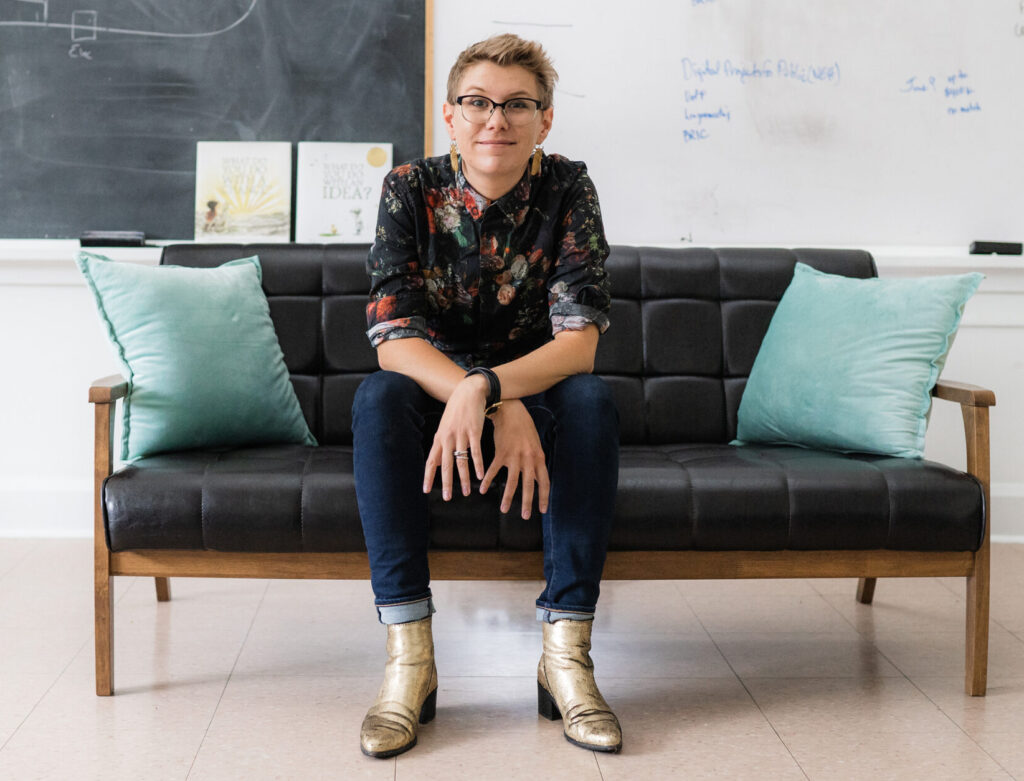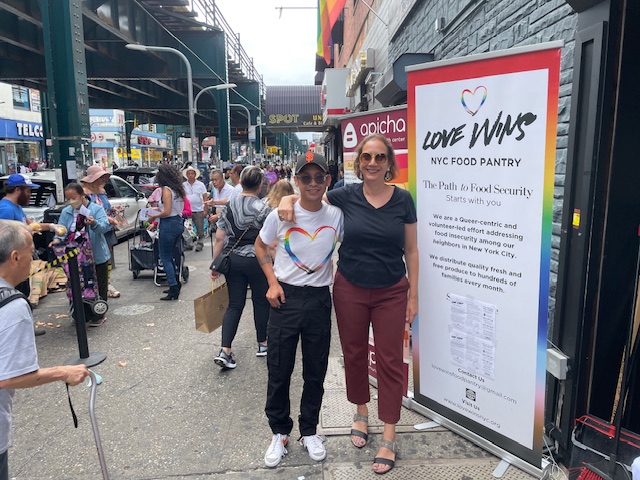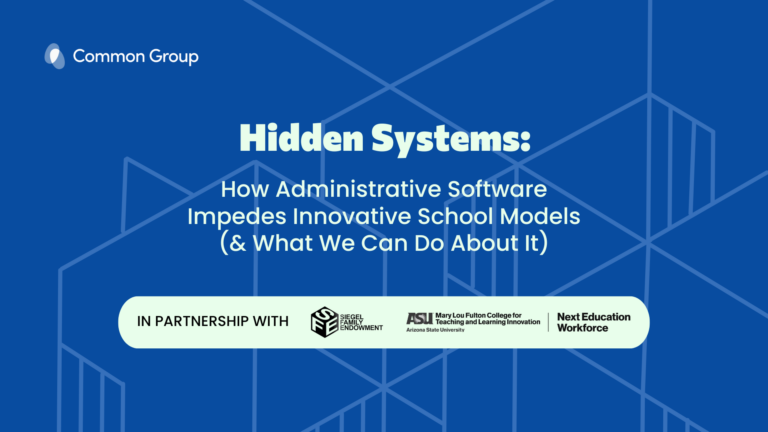How the Black River Innovation Campus (BRIC) is Revitalizing and Rebuilding Community in Rural Vermont: A Leadership Q&A with Interim CEO Marguerite Dibble

Vermont’s Precision Valley was once a manufacturing hub. But the region’s economy has struggled in a post-industrial economy. The Black River Innovation Campus (BRIC) seeks to reverse those fortunes by offering spaces, resources, and support for entrepreneurship to thrive.
BRIC offers a physical space for entrepreneurs to co-work, receive mentorship, network, and learn. BRIC’s Actuator entrepreneurship and lifestyle curriculum is building a new generation of tech entrepreneurs that are rooted in the community. BRIC is also building community through partnership with a variety of stakeholders, including technical colleges, economic development organizations, local businesses, and the wider public. Together, these stakeholders are re-envisioning what a community can look like by creatively leveraging technology to help rural Vermont thrive.
We sat down with Marguerite Dibble, a native Vermonter, entrepreneur, and interim executive director at BRIC to find out what makes the Precision Valley special, what BRIC is doing to leverage community assets and values, and what other rural communities can learn from BRIC’s experience.
Where did the idea for BRIC emerge? What challenges is BRIC trying to solve for?
BRIC really started with this idea that Springfield, Vermont used to be an apex of industrial activity. It was one of the manufacturing centers of America. People talk a lot about how it was on Hitler’s “must-bomb” list during World War II because it was such a large tools manufacturer. It was a thriving ecosystem with an economy that was directly tied to all of this manufacturing work.
And then times changed. Manufacturing shifted away and Springfield fell into a place that many communities around America have fallen into—where the core industry that made it possible as a community has shifted someplace else.
BRIC really began through an effort around revitalization. How can we bring vibrancy and activity to rural communities—where much of the infrastructure and possibility still exist, but where the industry has left?
BRIC began as an effort to say, “How can we take what’s here and put it through a lens of what’s going to be applicable into the future, industry-wise? How can we ground that in a sense of entrepreneurship that gives this community an innovation edge that will position it for success?”
One of your aims at BRIC is not just to revitalize the local economy but to reenergize the community more generally. How does that social dimension fit into your work?
Springfield is a community that has gotten left behind in a lot of ways: in housing, transportation, social and economic mobility, the opioid crisis. You can’t just plop a tech company down the town and it’s going to answer all of the problems. You really have to be thinking about how it will impact the entire community.
At BRIC, we try to create a catalyst for energy and hope and vibrancy within the community as a whole—not just a tower on a hill that represents an inaccessible economy to many of the people that form the actual foundation of the Springfield community.
That’s why our partnerships and relationships with stakeholders like the technical college, economic development groups, and the school district, are so important. They keep us grounded in the community as a whole.
The thing about Vermont that’s a real advantage is that it’s such a small place. Because we have so few resources in the state, we really have to collaborate with stakeholders. That’s a real advantage because it means that the collaborations that we create get utilized across a wide space.
BRIC offers programming in a physical space. At the same time, you’re leveraging the power of technology to help entrepreneurs and others in your community reach beyond the physical boundaries of that space. Why have you decided to create programming and opportunities that exist in both virtual and physical spaces?
We all exist in a community, whether we really fully recognize it or not. It’s also part of what makes Vermont so special—that sense of community connection. At the same time, one of the biggest challenges for people that are coming here and trying to become Vermonters is isolation. It can be a really intimidating process to jump into this very rural way of life.
If we’re able to build a foundation of community and connectedness that has an in-person aspect, that provides something that I think is essential for all of us. It’s also really taking a key value proposition that Vermont has in terms of offering something that feels rewarding and grounding. That sense of community is something that we really need as people.
We can also take advantage of the opportunities that technology provides us. With technology, you can provide that community foundation, and then you can connect people with resources globally in order to elevate the experience that they’re having for both their business and their work life.
Practically speaking, how do you achieve those goals? What programs are you offering at BRIC?
The BRIC program is located in this beautiful, old schoolhouse that was originally built in the late 1800s, and that was added onto in the 1920s. It’s such a wonderful, little microscopic example of this incredible structure that was created during a time when there was much more local vibrancy because of the industry that was able to be based in the community. But it’s still this incredible resource.
BRIC has taken a component of the building and remodeled it to be a co-working space where we’re able to be that hub where people can come and connect. We have co-working space available, we have offices, we have this really great green room studio. We have people who run podcasts out of there, and people who do filming in there.
In short, we provide a lot of physical tools that can be challenging for people to get on their own. We host events and activities to bring people in the community together in this space.
We also have a curriculum and activities for Actuator, which is our program to support entrepreneurship. That curriculum is a mix of in-person activities in the community, remote learning, and connection to mentors. That full spectrum of ways that folks can access resources offers them the best experience that they can have.
You’re an entrepreneur yourself. Is BRIC a community that you wish you had had earlier in your entrepreneurial journey?
I grew up in Vermont. As a child, I lived very close to Springfield. My parents were creative people, but they were contractors. My dad had a house painting company, so I grew up seeing someone build their own company. That was something I always wanted to do, too.
But when I would talk to my parents about this, they would say, “That’s amazing. But the only ‘industry’ in this part of Vermont is contracting work, providing services for second homeowners. That’s what’s here.”
I always liked technology. I liked building things with computers. I liked working in technological spaces. I went to college in Vermont through a scholarship program in entrepreneurship. I built companies coming right out of it. I built a game studio that I still run, and I really wanted to have my company in Vermont.
I really grew to appreciate the unique entrepreneurial components that Vermont has, including the sense of community and folks’ willingness to help. And BRIC really makes the promise and possibility of this area possible. I can be a tech entrepreneur here now, in a way that wasn’t possible when my dad started his house painting business.
At BRIC you’re working on a variety of programs to help tech entrepreneurs in the Precision Valley on that journey. You mentioned the Actuator program earlier. Tell us more about Actuator.
The Actuator program is about helping people understand that they can have a company and that they can do it here. We offer a 10-week curriculum. In our next cohort, we’re focusing our program on two new lenses.
One is we really want to treat it as a founder’s curriculum, generally-speaking. Not only is this going to be a chance to build out and test a specific startup idea but we’re going to be giving general skills that our founders can use for a lifetime of entrepreneurship. We’re going to be teaching you how to analyze ideas and identify new opportunities, and think about the world through this lens of entrepreneurship and innovation. For me, that’s really key because it connects with this Vermont ideal: always iterate, always be agile, always be flexible to meet the next opportunity.
And the second lens is a lifestyle focus where we teach you what it takes to live in rural Vermont. We’ll have different activities, membership opportunities, and experiences to make the journey of entrepreneurship here less isolating. And we’ll tackle the nuts-and-bolts of living in Vermont—things like how to get on your snow tires, how to deal with housing and heating. It’s a lifestyle tutorial and also lifestyle exposure to everything that’s wonderful about living in this place. That way we’re not creating companies that then move other places; these are companies and people who are rooted in the community.
What lessons do all the BRIC programs you described offer for other communities—especially rural communities—who want to pursue economic development, workforce, and education goals simultaneously?
What I would really encourage people to do, especially in rural communities, is to understand that everyone ultimately wants the same thing for their community. We all want this community to be something that’s welcoming. We all want this community to be something that’s vibrant. We all want this community to be something that’s equitable. We can all come to the table and recognize that through collaboration we will find the greatest success. The touchstone for that collaboration is the reason we all started devising these approaches to begin with.
That shared set of goals can be a real tool for lowering barriers and then empowering everybody to collectively say, “If this is the future we want to be able to work towards, how can we listen to everyone’s unique experience? How can we hear that fully?” At that point, it’s possible to ask, “How can we find a way to all collaborate and achieve that shared goal together, drawing on each of our experiences and strengths?”
####
Marguerite Dibble is interim executive director at BRIC. She is also an entrepreneur and currently is president and CEO of GameTheory Co, a company that creates games for education and research.
Learn more about BRIC here.





